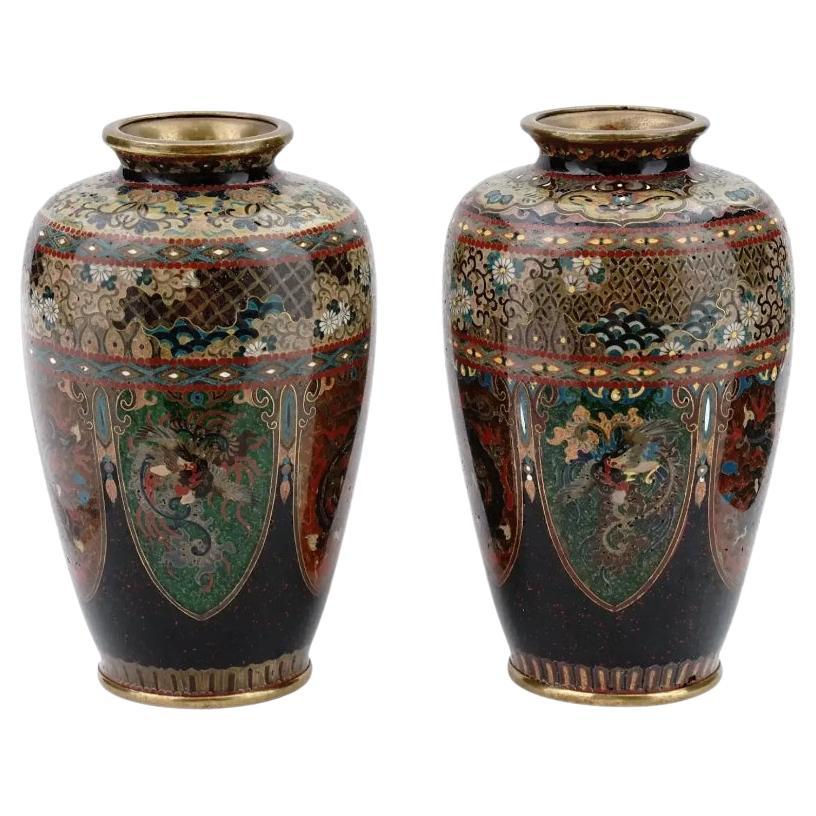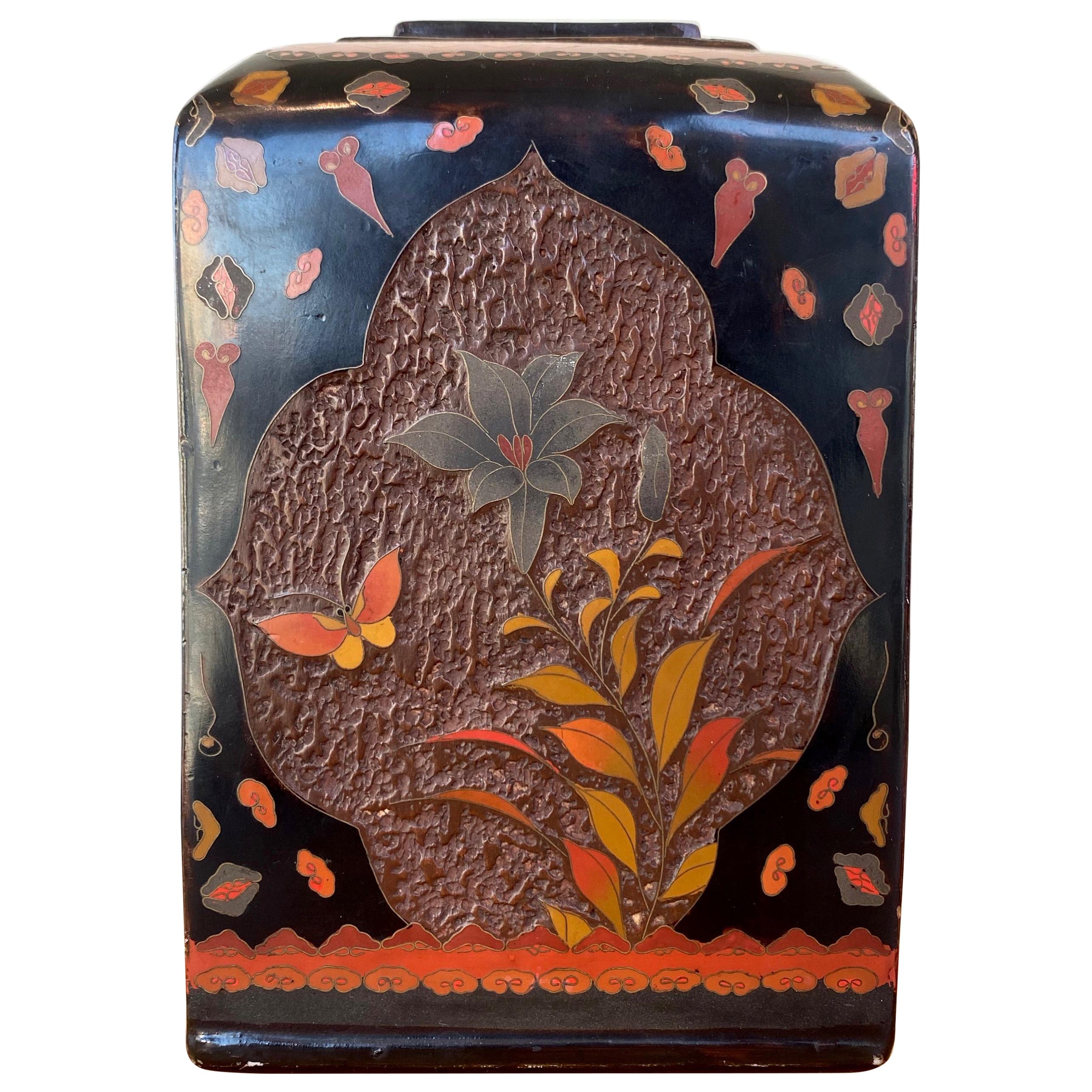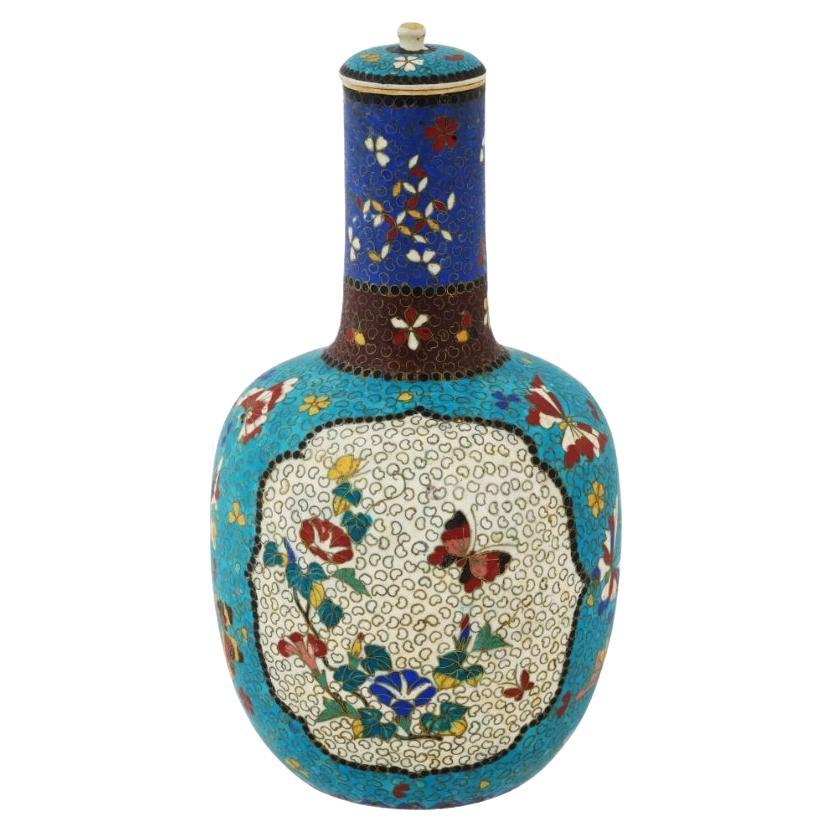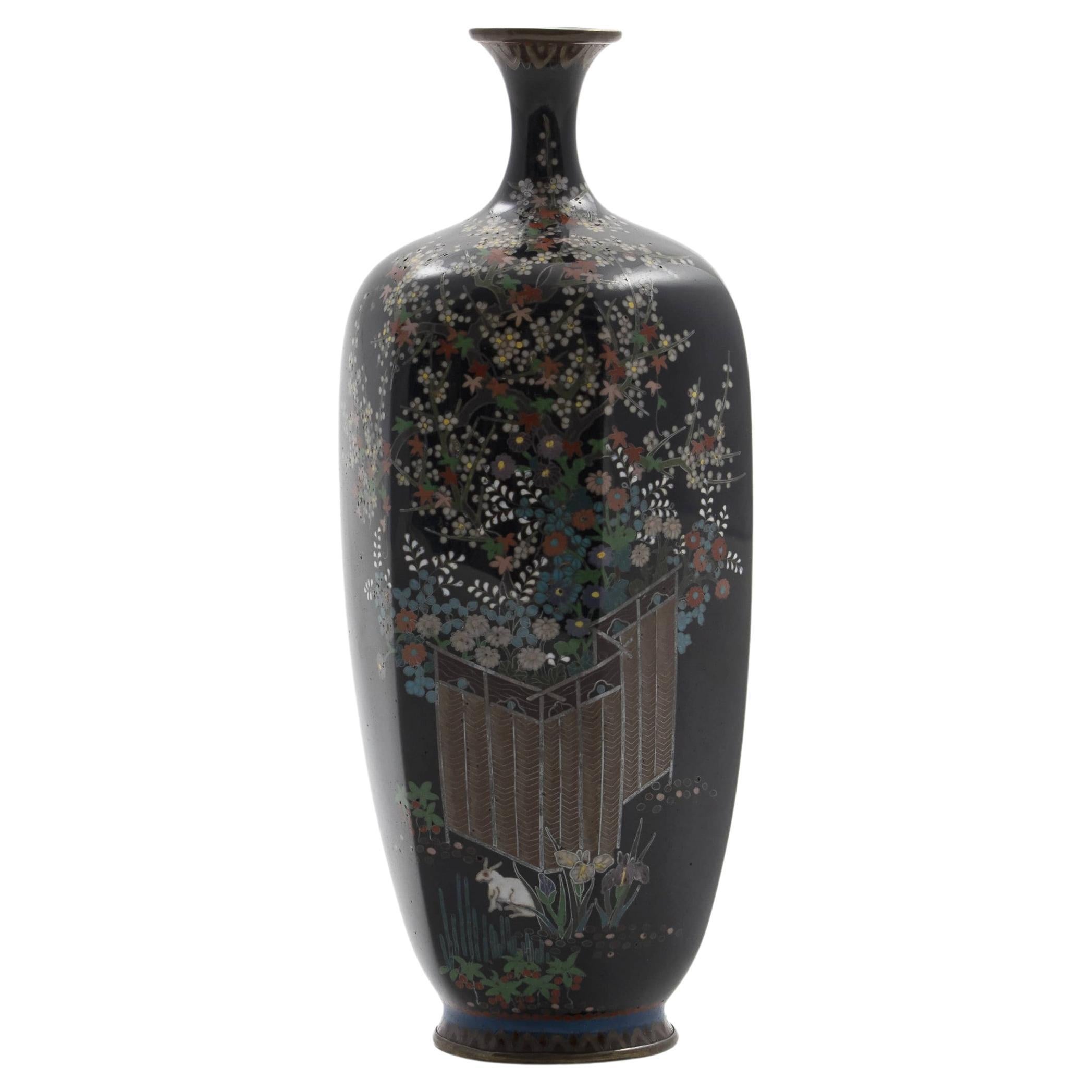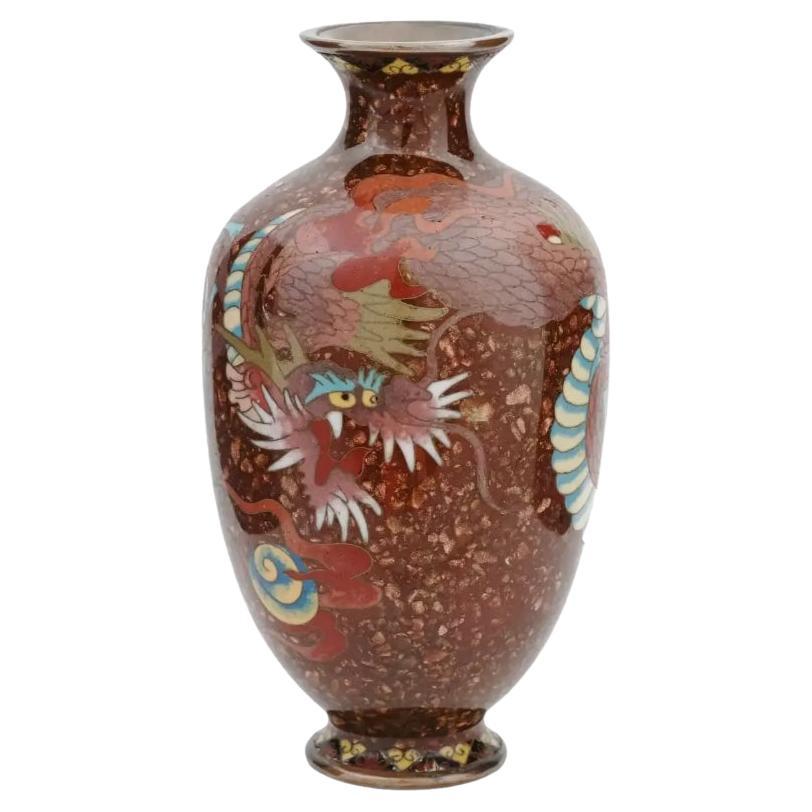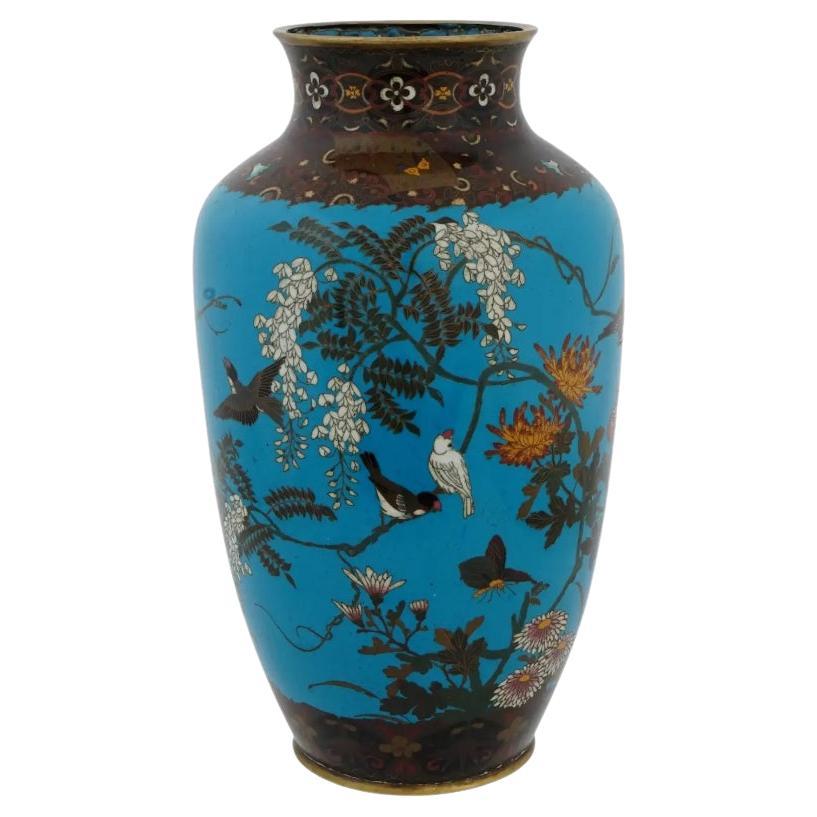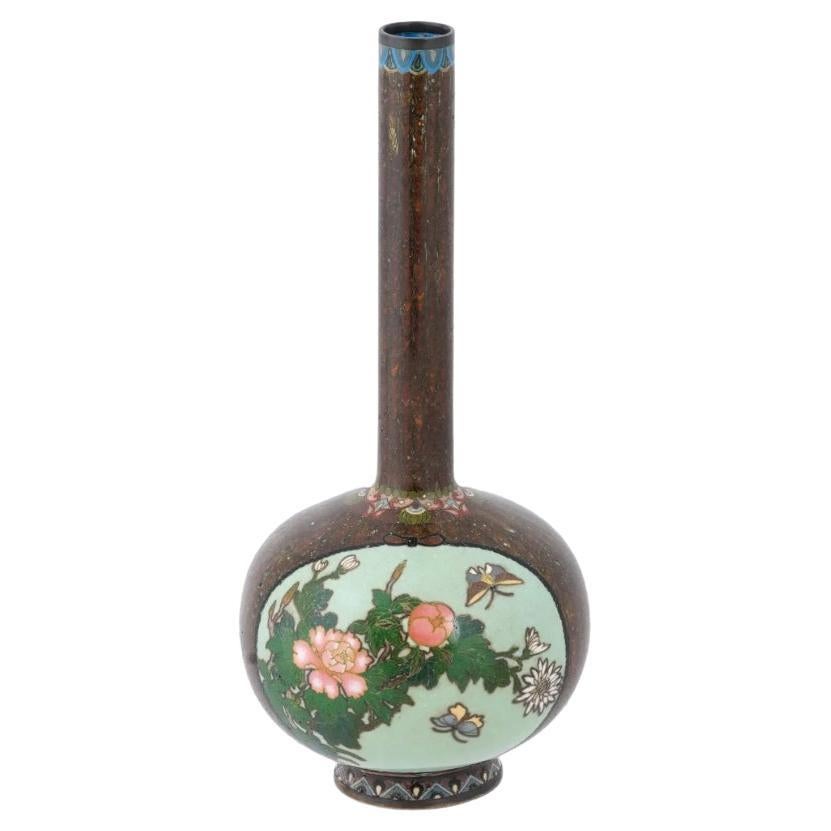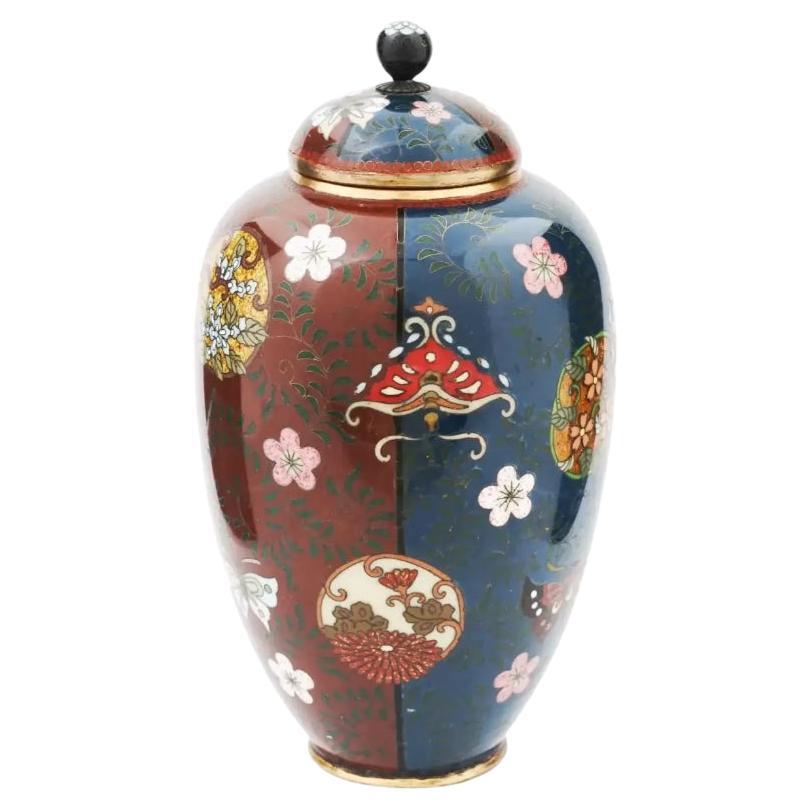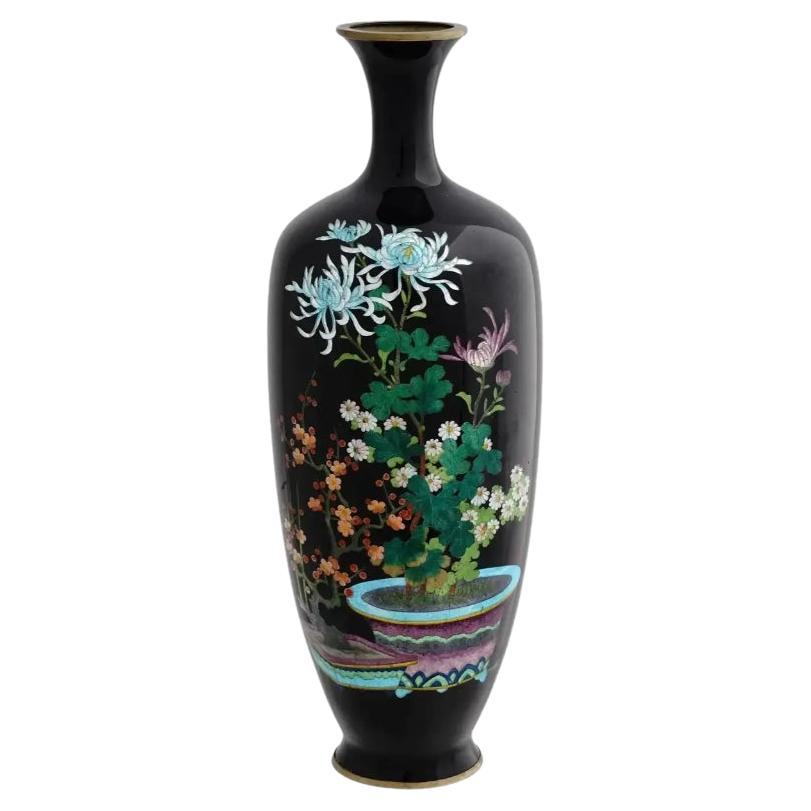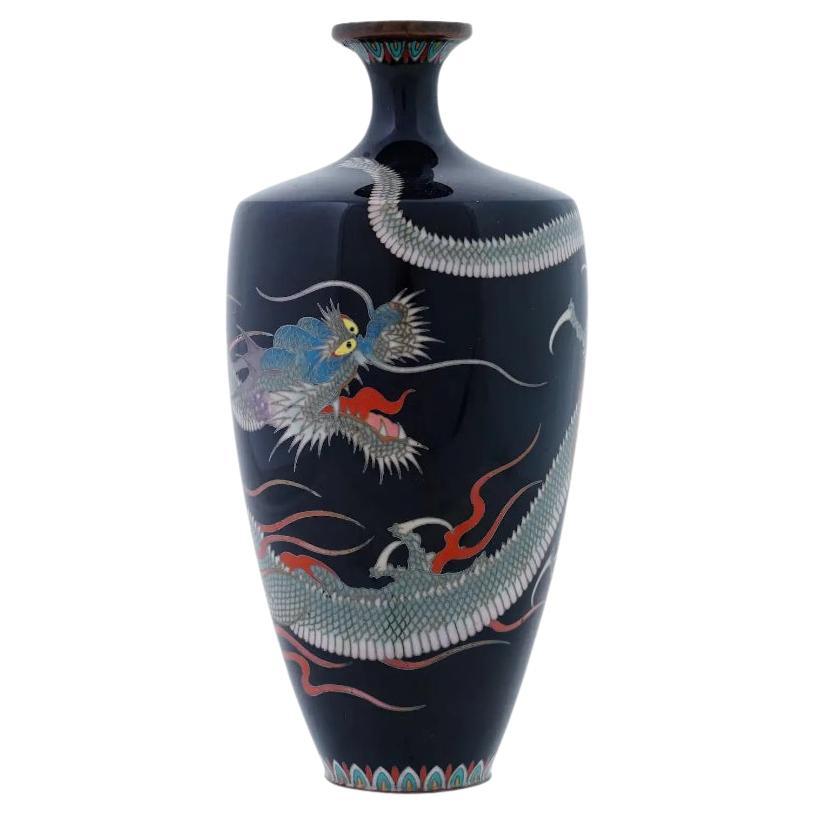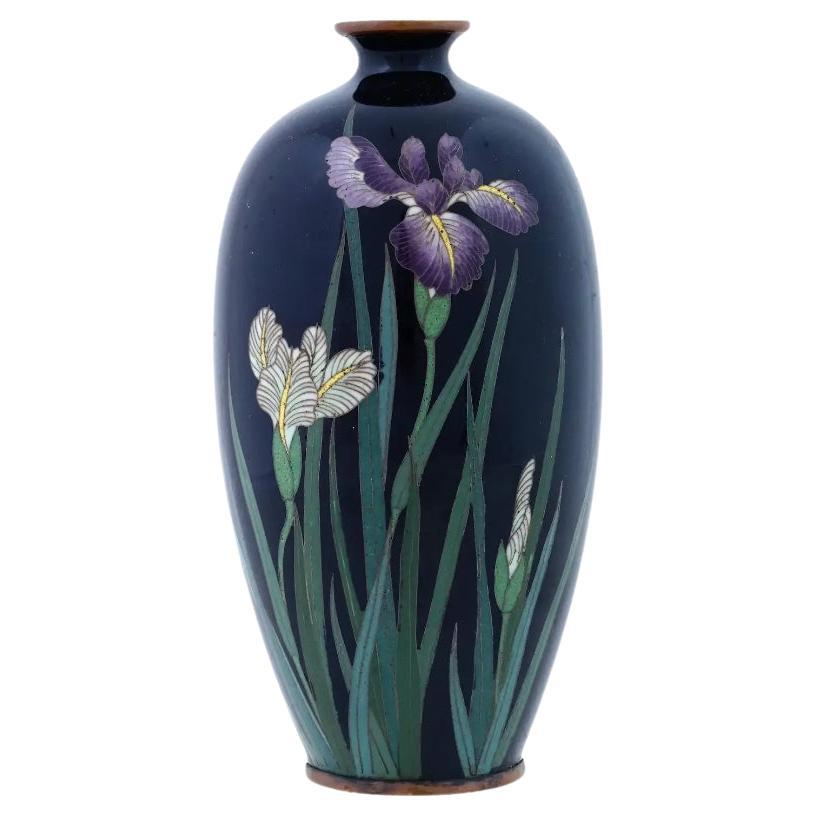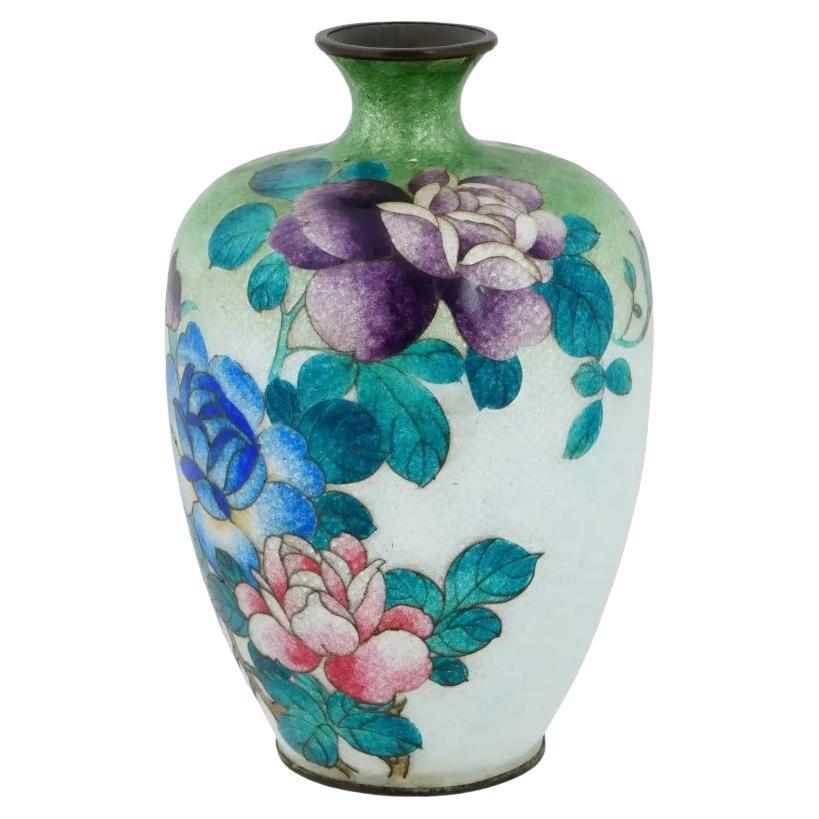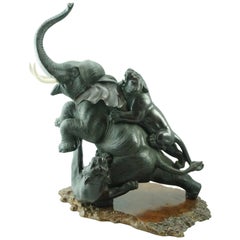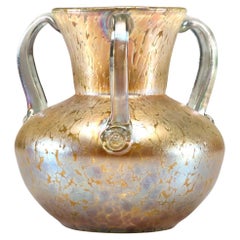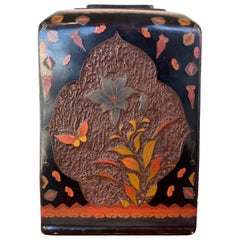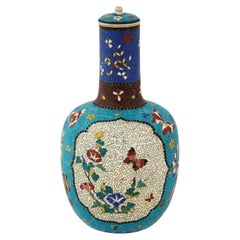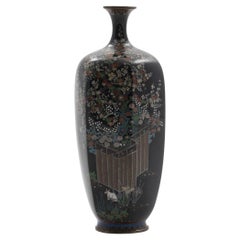
Japanese Meiji Cloisonné Porcelain Shippo Vases
View Similar Items
Want more images or videos?
Request additional images or videos from the seller
1 of 10
Japanese Meiji Cloisonné Porcelain Shippo Vases
About the Item
- Creator:Takeuchi Chubei (Manufacturer)
- Dimensions:Height: 14.2 in (36.07 cm)Diameter: 6.5 in (16.51 cm)
- Style:Meiji (Of the Period)
- Materials and Techniques:Porcelain,Enameled
- Place of Origin:
- Period:
- Date of Manufacture:1880
- Condition:Wear consistent with age and use. A chip on one base. Photo.
- Seller Location:Dallas, TX
- Reference Number:1stDibs: LU1774213642322
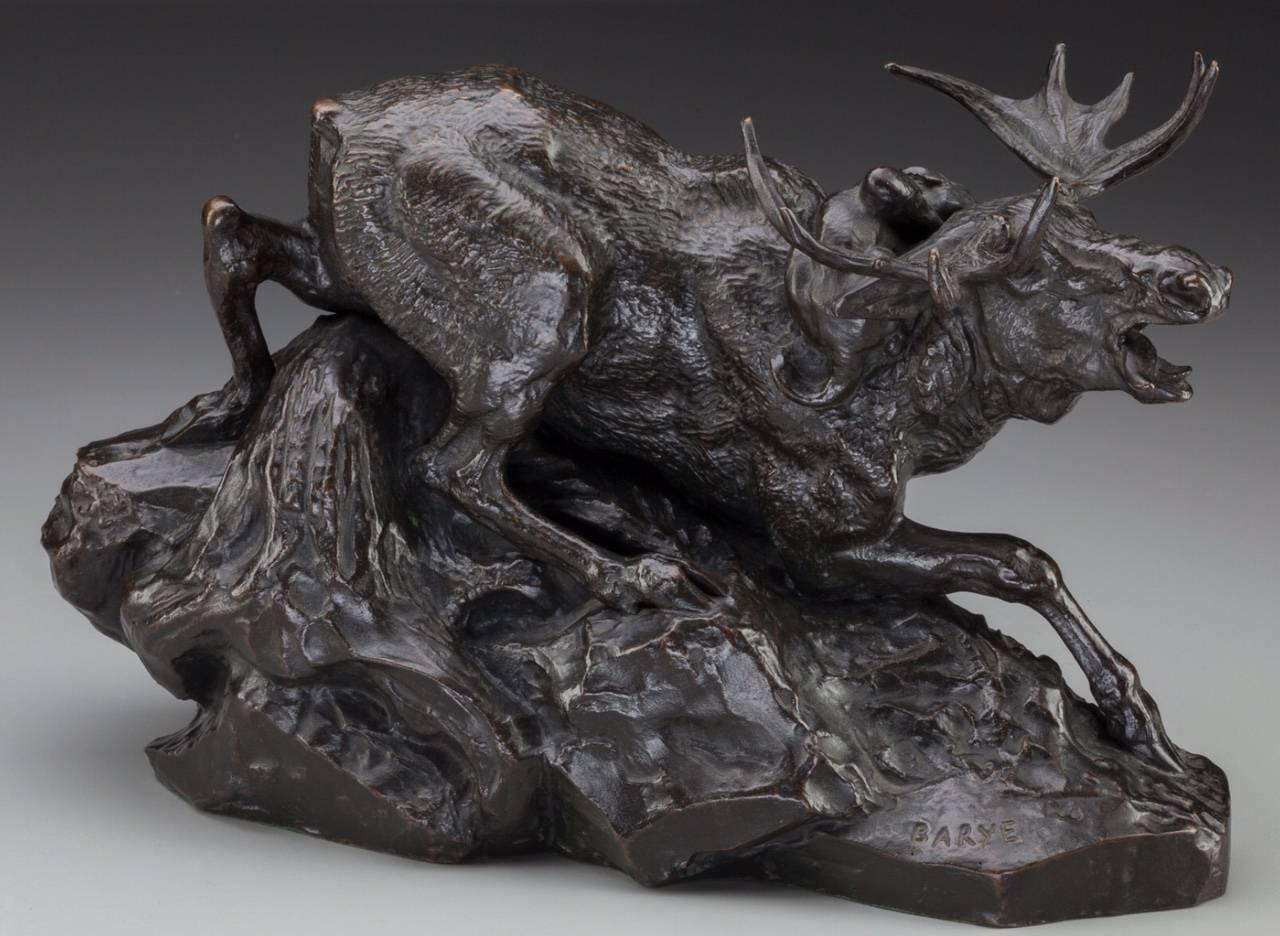
About the Seller
4.9
Gold Seller
These expertly vetted sellers are highly rated and consistently exceed customer expectations.
Established in 2000
1stDibs seller since 2015
405 sales on 1stDibs
Typical response time: 2 hours
More From This SellerView All
- Japanese Meiji Genryusai Seiya Bronze Elephant and TigersLocated in Dallas, TXJapanese Meiji Genryusai Seiya bronze elephant and tigers, circa 1890. This moving and detailed bronze grouping depicts a savage attack by two viscous...Category
Antique 1890s Japanese Meiji Animal Sculptures
MaterialsBronze
- Daum Nancy Art Nouveau VaseBy DaumLocated in Dallas, TXDaum Nancy Art Nouveau Applied Handle footed Vase. A very rare donut shaped vase with beautiful applied handles. From reds to pinks to creams to green. Height: 5 Inches Width: 3.75 ...Category
Vintage 1910s French Art Nouveau Vases
MaterialsArt Glass
- Loetz Candia Papillon Three Handled VaseBy Loetz GlassLocated in Dallas, TXLoetz Candia Papillos three handled vase. Austria Circa 1910 Measures: Height: 5.75 inches Diameter: 5.5 inches Condition Excellent with no issues. AVANTIQUES is dedicated to providing an exclusive curated collection of Fine Arts, Paintings, Bronzes, Asian treasures, Art Glass and Antiques. Our inventory represents time-tested investment quality items with everlasting decorative beauty. We look forward to your business and appreciate any reasonable offers. All of our curated items...Category
Vintage 1910s Austrian Art Nouveau Vases
MaterialsArt Glass
- Large Emile Galle Scenic Cameo VaseBy Émile GalléLocated in Dallas, TXEmile Galle scenic wheel carved and acid etched cameo vase. A beautiful and tall cameo vase by Galle. The 18 - 1/2” tall vase has a background of muted yellow glass near the base, which progresses to blue/gray at mid-vase, and then peach towards the top. Brown, cameo cut trees are generously displayed across the body of the vase, with the addition of a boat in the lake. Signed "Galle". Dimensions: 18 - 1/2” x 10” x 8”. Condition: Very good Émile Gallé (8 May 1846 in Nancy – 23 September 1904 in Nancy) was a French artist and designer who worked in glass, and is considered to be one of the major innovators in the French Art Nouveau movement. He was noted for his designs of Art Nouveau glass art and Art Nouveau furniture, and was a founder of the École de Nancy or Nancy School, a movement of design in the city of Nancy, France. Gallé born on 4 March 1846 in the city of Nancy, France. His father, Charles Gallé, was a merchant of glassware and ceramics who had settled in Nancy in 1844, and his father-in-law owned a factory in Nancy which manufactured mirrors. His father took over the direction of his mother's family business, and began to manufacture glassware with a floral design. He also took over a struggling faience factory and began manufacturing new products. The young Gallé studied philosophy and natural science at the Lycée Imperial in Nancy. At the age of sixteen he went to work for the family business as an assistant to his father, making floral designs and emblems for both faience and glass. In his spare time he became an accomplished botanist, studying with D.A. Godron, the director of the Botanical Gardens of Nancy and author of the leading textbooks on French flora. He collected plants from the region and from as far away as Italy and Switzerland. He also took courses in painting and drawing, and made numerous drawings of plants, flowers, animals and insects, which became subjects of decoration. At the age of sixteen he finished the Lycée in Nancy and went to Weimar in Germany from 1862–1866 to continue his studies in philosophy, botany, sculpture and drawing. In 1866, to prepare himself to inherit the family business, he went to work as an apprentice at the glass factory of Burgun and Schwerer in Meisenthal, and made a serious study of the chemistry of glass production. Some of his early glass and faience works for the family factory at Saint-Clémont were displayed at the 1867 Paris Universal Exposition. In early 1870 he designed a complete set of dishware with a rustic animal designs for the family enterprise. During this time he became acquainted with the painter, sculptor and engraver Victor Prouvé, an artist of the romantic "troubadour" style, who became his future collaborator in the Nancy School. He enlisted for military service in the Franco-Prussian War in 1870, then was demobilised after the disastrous French defeat in 1871 and the French loss to Germany of much of the province of Lorraine, including Meisenthal where he had done his apprenticeship. Thereafter the Cross of Lorraine, the patriotic symbol of the region, became part of his signature on many of his works of art. After his demobilization Gallé went to London, where he represented his father at an exhibition of the arts of France, then to Paris, where he remained for several months, visiting the Louvre and Cluny Museum, studying examples of ancient Egyptian art, Roman glassware and ceramics, and especially early Islamic enamelled...Category
Antique Early 1900s French Art Nouveau Vases
MaterialsArt Glass
- Ming Dynasty Bronze Gu Beaker VaseLocated in Dallas, TXChinese bronze vase, Gu, the trumpet-shaped upper section cast with four blades filled with archaic designs. Center and lower sections depicting Toadies with very intricate backgroun...Category
Antique 17th Century Chinese Ming Vases
MaterialsBronze
- Loetz Candia Papillon Art Nouveau VaseBy Loetz GlassLocated in Dallas, TXLoetz Iridescent and oil spot Flared Neck Art glass Floriform Goose neck vase. Candia Papillon vase Austria Iridescent glass Unsigned Circa 1898 A...Category
Antique 1890s Czech Art Nouveau Vases
MaterialsArt Glass
You May Also LikeView All
- Japanese Meiji Jiki-Shippo “Tree-Bark” Cloisonné Porcelain Vase, Early 1900sLocated in San Francisco, CAA very charming and warm, vibrantly colored Japanese Meiji period jiki-shippo “tree-bark” cloisonné porcelain vase. Subtly tapered rectangular for...Category
Antique Early 1900s Japanese Meiji Vases
MaterialsBronze
- Rare Kinkozan Totai Shippo Japanese Cloisonne on Porcelain BottleLocated in New York, NYAn antique Japanese Meiji era, 1868 to 1912, Totai Shippo cloisonne enamel and porcelain sake bottle. Decorated with finely detailed birds, flowers and butterflies in turquoise blue ...Category
Antique Late 19th Century Japanese Meiji Vases
MaterialsEnamel
- Small Cloisonné Vase, Meiji Period, JapanLocated in Kastrup, DKSmall cloisonné vase in bronze. Signed to the bottom. Blue enamel base color decorated with numerous flowers, reeds, a rabbit etc. in polychrome e...Category
Antique Late 19th Century Japanese Meiji Vases
MaterialsBronze
- Antique Japanese Meiji Goldstone Cloisonne VaseLocated in New York, NYAn antique Japanese, late Meiji Era, enamel over brass vase. Circa: early 20th century. The amphora shaped vase is enameled with a polychrome image of a dragon made in the Cloisonne ...Category
Early 20th Century Japanese Meiji Vases
MaterialsEnamel, Brass
- Antique Japanese Meiji Cloisonne Enamel VaseLocated in New York, NYAn antique Japanese copper vase with polychrome cloisonne enamel decor. Late Meiji period, before 1912. Baluster shape, flower brunches and birds decor against turquoise background. ...Category
Antique Late 19th Century Japanese Meiji Vases
MaterialsCopper, Enamel
- Large Antique Japanese Meiji Cloisonne Enamel VaseLocated in New York, NYA large antique Japanese, Meiji era, enamel over copper vase. The vase has a globular shaped body and a long narrow neck. The ware is enameled with polychrome medallions depicting a ...Category
Antique Late 19th Century Japanese Meiji Vases
MaterialsCopper, Enamel
Recently Viewed
View AllMore Ways To Browse
Cloisonne Enamel Porcelain Vase
Shippo Vase
Japanese Shippo Vase
Japanese Cloisonne Porcelain
Tall Cloisonne Vases
Bubble Blower Tiffany
Carerra Y Carerra
Carla Peters
Carlson Pottery 1982
Cassina Infinity
Ch 388
Chamberlains Antique Bottle
Chinana Jemez Pottery
Christofle Cardinal
Clifton Pottery
Collection Of Bode Willumsen Ceramic
Cristal De Murano
Danish Jewelry With Swan Mark
